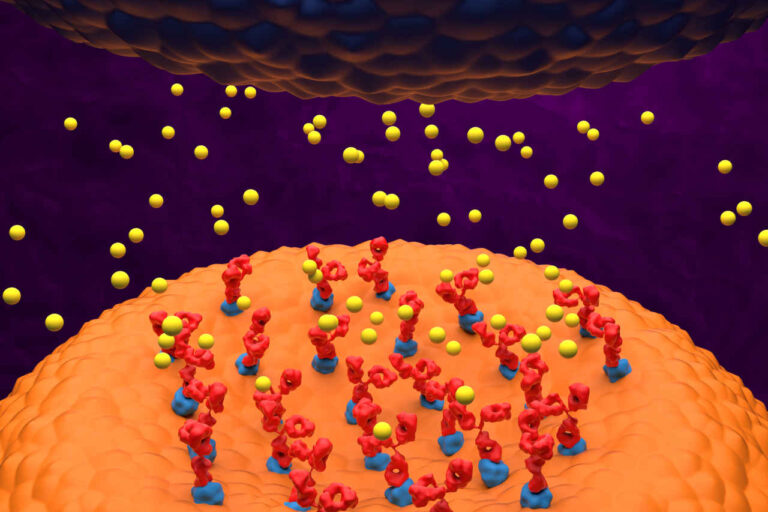
Bệnh nhược cơ (MG) là một bệnh tự miễn trong đó các kháng thể chặn hoặc phá vỡ sự giao tiếp giữa dây thần kinh và cơ, dẫn đến chức năng cơ kém hoặc yếu.
Các triệu chứng của bệnh nhược cơ có thể bao gồm yếu cơ tay và chân, nhìn đôi, khó khăn khi nói và ăn uống. Có nhiều phương pháp điều trị khác nhau cho tình trạng này. Tuy nhiên, người bị nhược cơ cần tránh một số loại thuốc để ngăn ngừa biến chứng.
Ở đây, chúng ta sẽ xem xét kỹ hơn các loại thuốc này.
Nhận hỗ trợ đồng thanh toán IVIG
Nói chuyện với một chuyên giaĐiều trị bệnh nhược cơ
Có nhiều loại khác nhau các lựa chọn điều trị cho MGvà thường thì nhiều bệnh nhân sẽ cần được bác sĩ chuyên khoa chăm sóc để hỗ trợ điều trị tình trạng của mình. Các lựa chọn điều trị bao gồm thuốc tăng cường cơ, steroid, và đôi khi là phẫu thuật.
Tuy nhiên, điều quan trọng cần lưu ý là bệnh nhân nhược cơ nên tránh một số loại thuốc để ngăn ngừa các triệu chứng trở nặng hơn. Ví dụ, một số loại thuốc bạn phải tránh để đảm bảo an toàn nếu bị nhược cơ có thể hoạt động như chất ức chế và làm mất tác dụng của các loại thuốc khác.
Chúng có thể vô hiệu hóa hiệu quả của các loại thuốc bác sĩ kê đơn để điều trị các triệu chứng của bệnh nhược cơ, làm mất đi bất kỳ lợi ích điều trị nào. Do đó, tốt nhất bạn nên thảo luận kỹ lưỡng với bác sĩ trước khi bắt đầu hoặc ngừng sử dụng bất kỳ loại thuốc nào.
Thuốc có thể làm trầm trọng thêm bệnh nhược cơ
Dưới đây là danh sách các loại thuốc mà chuyên gia chăm sóc sức khỏe khuyên bạn nên tránh trong quá trình điều trị bệnh nhược cơ.
1. Thuốc kháng sinh
Thuốc kháng sinh là thuốc kháng khuẩn có tác dụng điều trị hoặc ngăn ngừa nhiễm trùng do vi khuẩn.
Đây là một nhóm thuốc mà người mắc bệnh nhược cơ cần tránh để tránh làm bệnh nặng thêm. Thuốc kháng sinh có thể tương tác với các kênh dẫn truyền thần kinh và ức chế sự dẫn truyền tín hiệu.
Sau đây là một số loại thuốc chống nhiễm trùng được báo cáo là làm trầm trọng thêm các triệu chứng của bệnh nhược cơ.
1.1. Aminoglycosid
Một nhóm thuốc mà bệnh nhân nhược cơ cần tránh để kiểm soát tình trạng bệnh là aminoglycoside. Những thuốc này có thể làm trầm trọng thêm các triệu chứng nhược cơ đã có từ trước nếu dùng trong vòng một giờ sau khi dùng thuốc [1].
Như đã được chứng minh trong nhiều nghiên cứu, aminoglycoside có thể gây ra các triệu chứng giống nhược cơ ở những bệnh nhân không bị MG nhưng đang trong tình trạng nguy kịch. Nếu không thể khuyến cáo dùng thuốc nào khác, bệnh nhân nên thận trọng khi sử dụng các thuốc này. [7].
1.2. Fluoroquinolone
Fluoroquinolone là một nhóm thuốc khác mà người mắc bệnh nhược cơ cần tránh để ngăn ngừa biến chứng. Những loại thuốc này có liên quan đến các đợt bùng phát bệnh nhược cơ và có thể góp phần gây ra các biến chứng này.
Năm 2011, FDA đã báo cáo trong Hệ thống Báo cáo Biến cố Bất lợi của họ rằng những bệnh nhân dùng fluoroquinolone cho thấy các triệu chứng MG trở nặng hơn. Triệu chứng phổ biến nhất được báo cáo sau khi dùng fluoroquinolone là khó thở [2, 3].
Bệnh nhân có thể bị MG nặng hơn khi bắt đầu dùng fluoroquinolone, tình trạng này có thể kéo dài tới năm ngày [6]. Cần thận trọng khi sử dụng fluoroquinolone và tốt nhất là tránh hoàn toàn các loại thuốc này nếu bạn bị nhược cơ.
1.3. Macrolide
Macrolide là một loại thuốc khác mà bệnh nhân nhược cơ nên tránh để kiểm soát các triệu chứng một cách hiệu quả.
Macrolide có cảnh báo “hộp đen” do FDA Hoa Kỳ ban hành. Các nghiên cứu cho thấy chúng có thể làm trầm trọng thêm các triệu chứng MG và gây ra phản ứng tương tự như phản ứng xảy ra khi dùng fluoroquinolone [2].
Chúng có thể ảnh hưởng đến sự dẫn truyền thần kinh cơ, trực tiếp dẫn đến các triệu chứng nghiêm trọng hơn. Đã có báo cáo về tình trạng MG nặng lên ở bệnh nhân vài phút sau khi dùng thuốc. azithromycin.
Erythromycin và clarithromycin được biết là gây ra cùng một tác dụng phụ [6]. Do đó, cần thận trọng khi sử dụng macrolide và tốt nhất là tránh hoàn toàn.
Chưa có báo cáo nào về tình trạng bùng phát MG ở tất cả các loại kháng sinh. Tuy nhiên, cần hết sức thận trọng khi sử dụng các loại kháng sinh được liệt kê ở trên.
Nếu có thể, bệnh nhân nhược cơ nên tránh dùng các loại thuốc này để đảm bảo an toàn và lựa chọn các phương pháp thay thế. Nếu không có phương pháp thay thế, cần theo dõi chặt chẽ các dấu hiệu và triệu chứng của đợt cấp nhược cơ.
2. Thuốc chống loạn thần
Thuốc chống loạn thần như risperidone, haloperidol và olanzapine chủ yếu điều trị các vấn đề sức khỏe tâm thần như rối loạn trầm cảm nặng, rối loạn tâm trạng, tâm thần phân liệt, sa sút trí tuệ và rối loạn lưỡng cực. Chúng cũng ức chế sự dẫn truyền thần kinh cơ và có liên quan đến việc làm trầm trọng thêm các triệu chứng MG [4].
Các báo cáo cho thấy cả thuốc chống loạn thần điển hình và không điển hình đều có thể làm trầm trọng thêm các triệu chứng ở những bệnh nhân mắc MG [8]. Tốt nhất nên tránh những loại thuốc này để ngăn ngừa bệnh nhược cơ trở nặng hơn.
Nếu bệnh nhân bị trầm cảm hoặc tâm thần phân liệt cần dùng thuốc, nhà cung cấp dịch vụ chăm sóc sức khỏe phải theo dõi cẩn thận tình trạng và các triệu chứng của họ.
Nhận liều IVIG của bạn
Truyền dịch tại nhà3. Thuốc ức chế điểm kiểm soát miễn dịch
Thuốc ức chế điểm kiểm soát miễn dịch là một nhóm thuốc khác mà những người mắc bệnh nhược cơ nên tránh để kiểm soát tình trạng bệnh của mình.
Các loại thuốc như tremelimumab, avelumab, nivolumab, sintilimab và atezolizumab được sử dụng để cải thiện kết quả điều trị cho những bệnh nhân được chẩn đoán mắc một số loại ung thư nhất định, chẳng hạn như ung thư hắc tố.
Mặc dù hiếm gặp, các nghiên cứu đã chỉ ra rằng những loại thuốc này có thể gây ra các triệu chứng nghiêm trọng, đe dọa tính mạng và ảnh hưởng đến hệ thần kinh. Do phản ứng này rất nghiêm trọng, bệnh nhân nên được điều trị trước bằng các phác đồ như steroid, IVIG, hoặc huyết tương tách.
Một số bệnh nhân chưa từng được chẩn đoán mắc bệnh nhược cơ (MG) trước đây có thể sẽ xuất hiện các triệu chứng của MG lần đầu tiên trong vòng hai đến sáu tuần sau khi dùng thuốc ức chế điểm kiểm soát miễn dịch. Vì vậy, tốt hơn hết là nên tránh dùng các loại thuốc này nếu bạn bị nhược cơ.
4. Thuốc chẹn beta

Thuốc chẹn beta (như atenolol, labetalol, metoprolol và propranolol) được sử dụng để điều trị chứng đau nửa đầu, bệnh tim và tăng huyết áp nhưng có khả năng gây nguy hiểm cho bệnh nhân MG và có thể làm trầm trọng thêm các triệu chứng của họ.
Tốt nhất nên tránh hoàn toàn các loại thuốc này nếu bạn bị nhược cơ. Tuy nhiên, nếu bạn phải dùng thuốc chẹn beta, hãy thận trọng khi sử dụng ở liều thấp nhất có hiệu quả, đặc biệt là trong giai đoạn đầu sử dụng [6].
5. Thuốc hạ cholesterol
Các loại thuốc được chứng minh là có tác dụng hạ cholesterol, chẳng hạn như statin (atorvastatin, simvastatin, fluvastatin), có thể gây ra các triệu chứng giống MG hoặc các đợt bùng phát.
Bệnh nhân có thể bị yếu chân tay sau khi điều trị bằng liệu pháp statin, nhưng tình trạng này thường hết sau khi ngừng điều trị. Các nghiên cứu đã chỉ ra rằng statin có thể gây ra Triệu chứng MG thông qua bệnh cơ do statin gây ra bằng cách thúc đẩy sản xuất kháng thể.
Bệnh nhân nhược cơ cần tránh dùng các loại thuốc này để ngăn ngừa đợt cấp. Liệu pháp statin nên được sử dụng thận trọng nếu được chỉ định và ở liều thấp nhất có thể để tránh bất kỳ biến chứng nào.
6. Độc tố Botulinum (Botox)
Độc tố Botulinum cũng có khả năng gây nguy hiểm cho bệnh nhân MG. Tiêm Botox có thể gây ra tình trạng yếu cơ quá mức bằng cách làm rối loạn sự truyền dẫn thần kinh cơ, cuối cùng dẫn đến một đợt triệu chứng MG nghiêm trọng.
Tiêm độc tố botulinum tại chỗ có thể làm nặng thêm MG hoặc thậm chí làm trầm trọng thêm MG đã được kiểm soát. Việc sử dụng độc tố botulinum có hiệu quả trong điều trị loạn trương lực cơ cổ, co thắt mí mắt và co giật loạn trương lực cơ mặt, đặc biệt ở những bệnh nhân bị MG.
Tuy nhiên, tốt nhất là bệnh nhân nhược cơ nên tránh dùng những loại thuốc này hoặc sử dụng hết sức thận trọng nếu cần thiết về mặt y khoa.
7. Magie sulfat
Magie sulfat là một loại thuốc khác mà những người mắc bệnh nhược cơ nên tránh để kiểm soát các triệu chứng.
Magiê ngăn chặn sự giải phóng acetylcholin, một chất dẫn truyền thần kinh thiết yếu đóng nhiều vai trò quan trọng trong cơ thể, bao gồm co cơ và các chức năng tự chủ của cơ thể. Việc chặn các chất dẫn truyền thần kinh acetylcholine có thể dẫn đến tình trạng yếu cơ.
Nếu bệnh nhân MG đang được nuôi dưỡng qua đường tĩnh mạch và đang được điều trị TPN truyền tĩnh mạch, sau đó cần bổ sung magie trong dung dịch vì nó có thể làm tình trạng bệnh nhân trở nên tồi tệ hơn.
8. Corticosteroid
Corticosteroid là nhóm thuốc cuối cùng mà những người mắc bệnh nhược cơ phải tránh để ngăn ngừa biến chứng.
Đây là những phương pháp điều trị tiêu chuẩn để kiểm soát các triệu chứng từ trung bình đến nặng của bệnh nhược cơ. Tuy nhiên, dùng liều cao có thể làm các triệu chứng trở nên trầm trọng hơn.
Bệnh nhân MG nên bắt đầu với liều thấp hơn và tăng dần đến liều tối đa có thể dung nạp hoặc được điều trị trước bằng IVIG hoặc huyết tương thay thế trước khi dùng corticosteroid.
Nhận được sự cho phép trước của IVIG
Phần kết luận
Nhiều loại thuốc có liên quan đến việc làm trầm trọng thêm bệnh nhược cơMặc dù chúng có thể có hiệu quả trong điều trị các tình trạng khác, chẳng hạn như nhiễm trùng hoặc rối loạn sức khỏe tâm thần ở bệnh nhân MG, nhưng những loại thuốc này có thể gây ra nhiều biến chứng hơn.
Điều quan trọng là phải biết về các loại thuốc này và tránh sử dụng nếu bạn bị nhược cơ. Bạn cũng phải hết sức thận trọng và theo dõi chặt chẽ khi bắt đầu hoặc dùng thuốc mới.
Các nhà cung cấp dịch vụ chăm sóc sức khỏe cũng nên lưu ý về các tác dụng phụ có thể xảy ra của những loại thuốc này đối với bệnh nhân nhược cơ để tránh các đợt cấp. Họ cũng phải sẵn sàng điều trị kịp thời cho bất kỳ trường hợp khẩn cấp nào phát sinh.
TÀI LIỆU THAM KHẢO:
- Karcic, AA (2000). Thuốc có thể làm nặng thêm bệnh nhược cơ. Y khoa sau đại học, 108(2), 25.
- Van Berkel, MA, Twilla, JD, & England, BS (2016). Quản lý khoa cấp cứu của một bệnh nhân nhược cơ bị viêm phổi mắc phải tại cộng đồng: lựa chọn kháng sinh ban đầu dẫn đến chữa khỏi hay nguy kịch?. Tạp chí Y học Cấp cứu, 50(2), 281-285.
- Jones, SC, Sorbello, A., & Boucher, RM (2011). Đợt cấp của bệnh nhược cơ liên quan đến fluoroquinolone. An toàn thuốc, 34(10), 839-847.
- She, S., Yi, W., Zhang, B., & Zheng, Y. (2017). Bệnh nhược cơ trở nặng sau khi dùng thuốc chống loạn thần để điều trị bệnh tâm thần phân liệt: báo cáo ca bệnh và tổng quan tài liệu. Tạp chí Dược lý học Tâm thần Lâm sàng, 37(5), 620-622.
- Becquart, O., Lacotte, J., Malissart, P., Nadal, J., Lesage, C., Guillot, B., & Du Thanh, A. (2019). Bệnh nhược cơ do thuốc ức chế điểm kiểm soát miễn dịch gây ra. Tạp chí Miễn dịch trị liệu, 42(8), 309-312.
- Sheikh, S., Alvi, U., Soliven, B., & Rezania, K. (2021). Thuốc gây ra hoặc làm bệnh nhược cơ nặng nặng hơn: cập nhật. Tạp chí Y học Lâm sàng, 10(7), 1537.
- Warner WA, Sanders E. Sự phong bế thần kinh cơ liên quan đến liệu pháp gentamicin. JAMA. 1971;215:1153–1154.
- She S., Yingjun Z., Zhang B., Zheng Y. Tình trạng nhược cơ nặng hơn sau khi dùng thuốc chống loạn thần để điều trị bệnh tâm thần phân liệt. J. Lâm sàng. Dược lý tâm thần. 2017;37:620–622
- https://myasthenia.org/Portals/0/Cautionary%20Drugs.pdf
- https://pubmed.ncbi.nlm.nih.gov/27012182/













